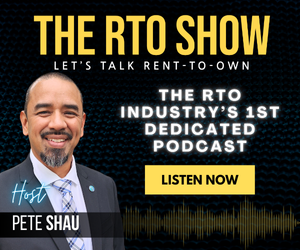
In a word (or three), let’s hope not. The Golden State was once the harbinger of all things bright and beautiful in America. Want to be a celebrity? Hollywood or Bust! Want to get into computers? Silicon Valley has a job for you. California as a beacon of the future seems less true these days, as the state’s homeless crisis and big cities’ soiled sidewalks are stark evidence that California’s politics have veered too far left for most people. California’s population has declined for the last two years, a harsh rebuke to the once popular catch phrase, “Go west, young man.” Folks seem to be heading in the opposite direction nowadays.
Rent-to-own has had its fair share of challenges in California. Rental dealers there got the most comprehensive, far-reaching statute in the country in 1994, after years of grueling negotiations with the California Department of Consumer Affairs and other consumer advocacy groups. The law dictated a three-month “same as cash” early purchase option, and outlawed offering liability damage waivers, among other things. Multi-state dealers generally agree that RTO is less profitable in California than in any other state – which is likely the reason there are fewer rent-to-own stores per capita in California than in any other state.
Regardless of how one feels about California and its politics, RTO has enjoyed a couple of recent successes in Sacramento. First, the governor was able to get his “mini CFPB” law passed, and happily for rent-to-own, the definition of “financial products and services” over which the newly created state agency has jurisdiction is exactly the same as is in the federal Dodd-Frank Act. So, traditional RTO transactions – with an initial term of a week or a month and sufficient lessor obligations to qualify the transaction as an “operating lease” – are not covered by the new law and its new agency. Rent-to-own life in California will go on as before under the strict-but-workable guidelines provided in the Karnett Rental Purchase Statute.
Second, this fall, the California State Legislature enacted a law further restricting debt collectors and applying the new law, for the first time anywhere, to primary debt collectors. About 33 states have statutes specifically aimed at third-party debt collectors, “collection agencies,” requiring licenses in most of those states and putting restrictions on collection efforts. No states have required first-party debt collectors to be licensed – until California.
RTO dealers are first-party debt collectors. They try to collect their own past-due rental payments and, ultimately, try to recover rental property that belongs to them. The California bill as originally drafted and introduced last spring included rental dealers and would have required them to be licensed by the state in order to do business there. They could have, in theory, rented without being licensed; they just could not have collected.
Again, happily, and largely thanks to RTO industry lobbyists and dealers, the bill was amended during the summer, and rental dealers were eliminated from the bill, which was enacted earlier this fall.
Rent-to-own is still a tough business to run in California, – tougher, perhaps, than anywhere else. But if Cali-based rental dealers had been stuck having to comply with these two new laws, it could have been much worse.
Ed Winn III serves as APRO General Counsel. For legal advice, members in good standing can email legal@rtohq.org









